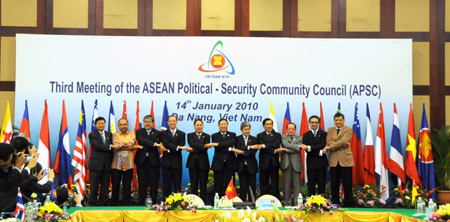
The Association of Southeast Asian Nations (ASEAN) last year celebrated its 50th anniversary. Since its establishment in 1967 by five countries in Southeast Asia (Indonesia, Malaysia, the Philippines, Singapore, and Thailand) it expanded to 10 countries (first five plus Brunei, Vietnam, Laos, Myanmar and Cambodia) and encompassed almost all of Southeast Asia. As it was mentioned in number of articles on its 50th anniversary, ASEAN during the past fifty years weathered the hot conflicts of the Cold War, domestic strife and turmoil in almost all of its Member States, economic recessions and headwinds from beyond the region.[1]
It was also stressed in these articles that ASEAN has positioned itself at the center of the regional architecture and succeeded in exerting considerable influence over the peace and prosperity of East Asia. It strived for Southeast Asian integration and achieved the establishment of the first regional community in Asia under the title of ASEAN Community.[2]
It is possible to enhance the list of the noteworthy achievements of ASEAN during the last 51 years especially in the area of economy oriented issues.
The Council for Security Cooperation in the Asia Pacific (CSCAP) has recently published its Regional Security Outlook for 2018. According to its web site, CSCAP was established in 1993. Web site introduces the Council as “a non-governmental (second track) process for dialogue on security issues in the Asia Pacific.”[3]
In its publication of “The CSCAP Regional Security Outlook 2018”, the Council further explains its status as “the premier Track Two organization in the Asia Pacific region and counterpart to the Track One processes dealing with security issues, namely, the ASEAN Regional Forum (ARF), the East Asia Summit (EAS) and the ASEAN Defense Ministers Plus Forum.”[4]
Per these explanations, CBCAP provides an informal mechanism for scholars, officials and others in their private capacities to discuss political and security issues and challenges facing the region. It provides policy recommendations to various intergovernmental bodies, convenes regional and international meetings and establishes linkages with institutions and organizations in other parts of the world to exchange information, insights and experiences in the area of regional political-security cooperation.
CSCAP is considered as the region- wide think tank network affiliated with the ASEAN Regional Forum (ARF). ARF is an affiliated dialogue and consultation platform of ASEAN. The objectives of the ARF is "to foster constructive dialogue and consultation on political and security issues of common interest and concern" and "to make significant contributions to efforts towards confidence-building and preventive diplomacy in the Asia-Pacific region."[5] In this sense CSCAP might be considered as one of the prominent think-thank institutions of ASEAN.
In the introduction section of the Regional Security Outlook for 2018, the editor of the publication states that “…during 2017, the international system appeared to slip more conspicuously into a gap between the established but besieged order and the still empty space of what might replace it.” Editor’s assessment of the ASEAN’s involvement in the security arena is quite striking. He states in this respect the following:
“ASEAN has painstakingly led the way in constructing an array of multilateral processes in the security arena - ARF, ADMM, EAS – that are often collectively characterized as an indispensable component of the architecture of security in the Asia Pacific. At the same time, ASEAN has also encountered mounting criticism for not developing an agenda for these processes that matched the interests and authority of the participants, let alone what the region needed or, indeed, addressed the preferences that ASEAN has itself articulated on how the major powers should relate to the grouping. A region’s security architecture, of course, is a means to an end. That end is a region that functions in a substantively orderly and harmonious fashion because its constituent members are content with their relative status and with the machinery available to address disputes, and are therefore prepared to be restrained in the setting of national goals and the means employed to advance them”
This assessment contains pertinent observations concerning the ASEAN’s general approach to the security issues. In view of the disturbing developments in the Eurasian context concerning the political-security order in the heartland of this region, dangerous break-down in the arms control arrangements as well as the certain prolonged conflicts in the Asian-Pacific Rim bring about serious risks not only to the Eurasian countries but also to the ASEAN.
In such a sensitive international security environment, it seems reasonable that the ASEAN might consider its more proactive involvement in the security issues instead of pronouncing rhetorical statements.
In this context it is possible to mention the South China Sea issue. There is no doubt that this is one of the major problems in the region. In spite of the fact that ASEAN has managed to present a position so far based basically on the expression of concerns regarding developments in the disputed waters, requests for a peaceful resolution and calls for a code of conduct has dramatically failed to find an effective way to deal with the issue. This reality has the potential to weaken the ASEAN’s ability to contribute to peace not in Southeast Asia and East Asia, but also nearby regions.
We are going through a period of time that hard security agenda has started to leave no room for repeated rhetorical statements. It is time to face this reality and strive for meaningful and goal-oriented dialogue on security issues.
*Photo: SİNA
[1] Tan Chin Tiong, “Editorial Note,” ASEAN Focus ISEAS-Yusof Ishak Institute, no. 5 (October 2017): 1–3, https://www.iseas.edu.sg/images/pdf/WEB-ASEANFocus-0917.pdf.
[2] Mie Oba, “Challenges for ASEAN As It Turns 50,” The Diplomat, October 16, 2017, https://thediplomat.com/2017/10/challenges-for-asean-as-it-turns-50/.
[3] “About Us” (Council for Security Corporaton In Asia Pasific, January 1, 2018), http://www.cscap.org/.
[4] Ron Huisken, “Regional Security Outlook” (Council for Security Corporaton In Asia Pasific, n.d.), http://www.cscap.org/uploads/docs/CRSO/CSCAP2018WEB.pdf.
[5] Teoman Ertuğrul Tulun., “The Relevance of Turkey’s Participation in the ASEAN Regional Forum,” Daily Sabah, August 16, 2018, sec. Opinion Editorial, https://www.dailysabah.com/op-ed/2018/08/16/the-relevance-of-turkeys-participation-in-the-asean-regional-forum.
© 2009-2025 Center for Eurasian Studies (AVİM) All Rights Reserved
No comments yet.
-
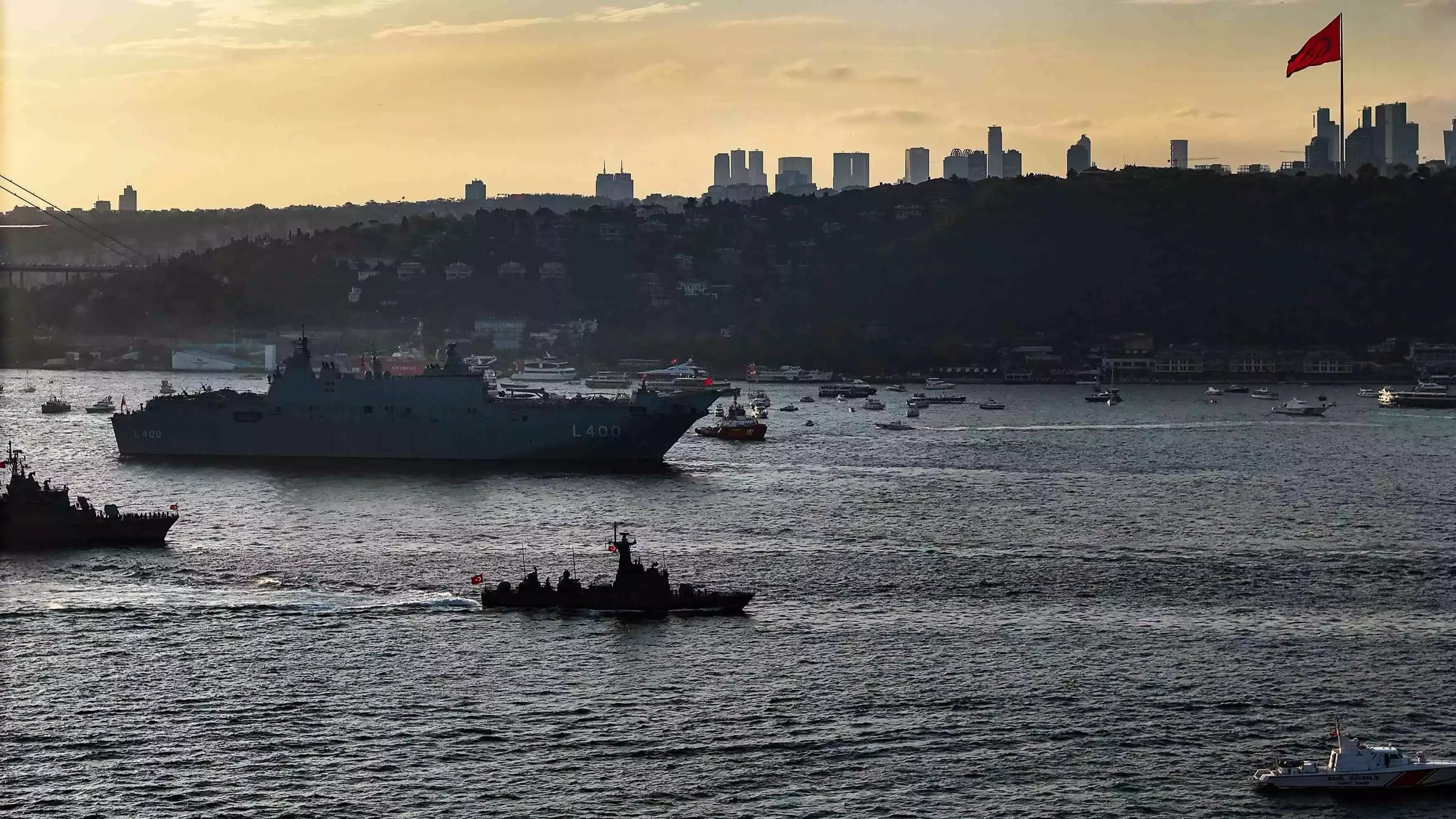 EFFORTS TO CHANGE OR CIRCUMVENT THE PROVISIONS OF THE 1936 MONTREUX STRAITS CONVENTION
EFFORTS TO CHANGE OR CIRCUMVENT THE PROVISIONS OF THE 1936 MONTREUX STRAITS CONVENTION
Teoman Ertuğrul TULUN 28.03.2024 -
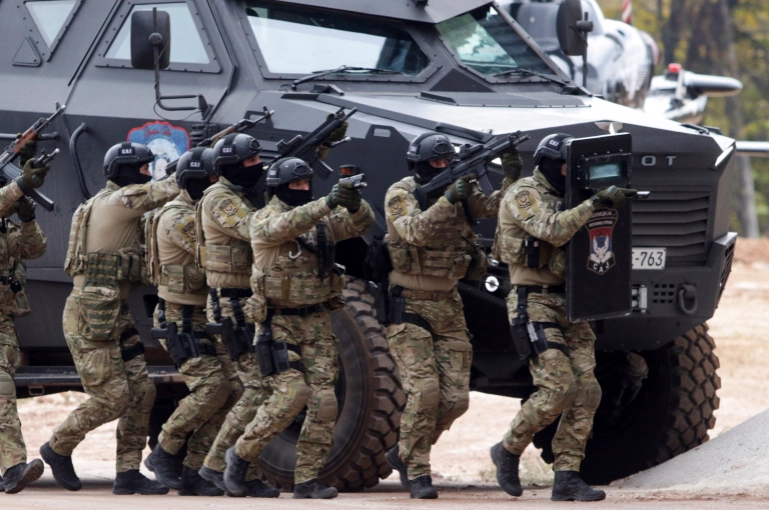 BOSNIA AND HERZEGOVINA FACES THE EXISTENTIAL THREAT OF SEPARATISM
BOSNIA AND HERZEGOVINA FACES THE EXISTENTIAL THREAT OF SEPARATISM
Teoman Ertuğrul TULUN 09.11.2021 -
 GREECE: 1821 CELEBRATIONS, TRIPOLITSA MASSACRE, BBC AND FAKE NEWS
GREECE: 1821 CELEBRATIONS, TRIPOLITSA MASSACRE, BBC AND FAKE NEWS
Teoman Ertuğrul TULUN 31.03.2021 -
 MESUT ÖZIL’S RESIGNATION STATEMENT UNVEILS THE OPEN SECRET OF LATENT RACISM AND BLATANT DISCRIMINATION IN GERMANY
MESUT ÖZIL’S RESIGNATION STATEMENT UNVEILS THE OPEN SECRET OF LATENT RACISM AND BLATANT DISCRIMINATION IN GERMANY
Teoman Ertuğrul TULUN 07.08.2018 -
 REASSESSING ARMENIA’S CONSTITUTIONAL ALIGNMENT WITH INTERNATIONAL NORMS
REASSESSING ARMENIA’S CONSTITUTIONAL ALIGNMENT WITH INTERNATIONAL NORMS
Teoman Ertuğrul TULUN 20.09.2024
-
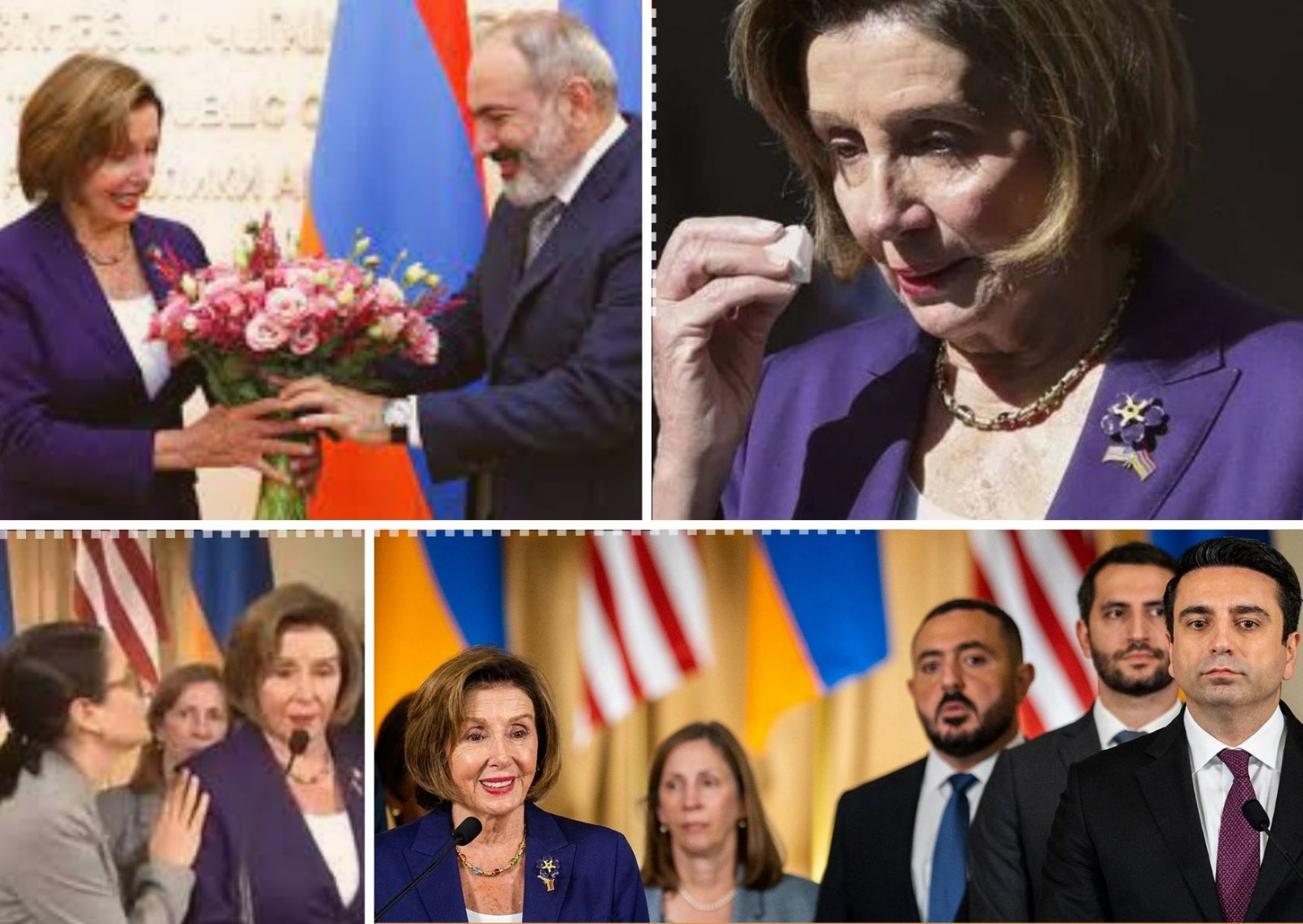 AN INQUIRY INTO NANCY PELOSI’S VISIT TO ARMENIA
AN INQUIRY INTO NANCY PELOSI’S VISIT TO ARMENIA
Turgut Kerem TUNCEL 23.09.2022 -
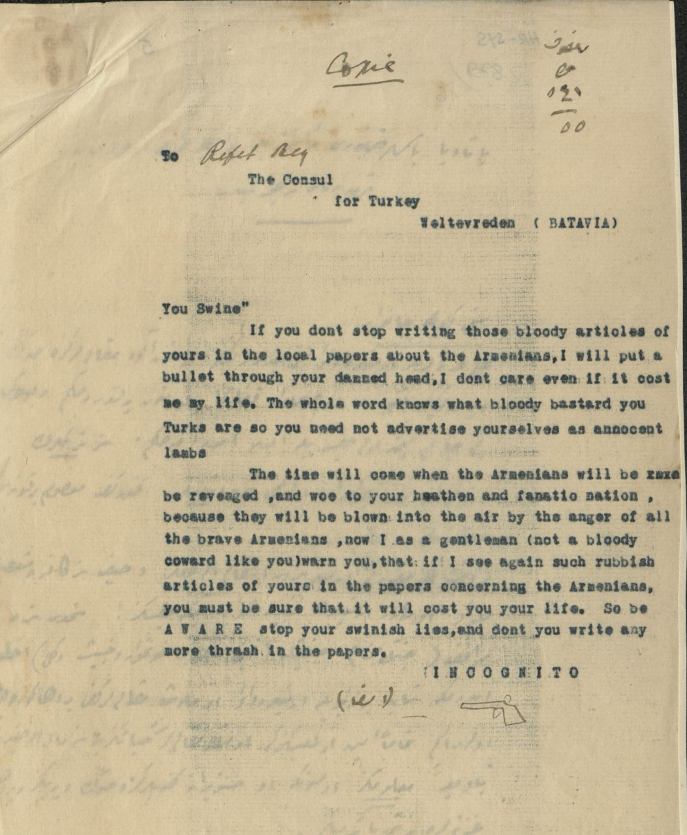 FROM DISTANT FRONTIERS TO A LONG CHAIN OF EXTREMISM: MEHMET REFET BEY AND EARLY ARMENIAN TERRORISM (1916)
FROM DISTANT FRONTIERS TO A LONG CHAIN OF EXTREMISM: MEHMET REFET BEY AND EARLY ARMENIAN TERRORISM (1916)
Hazel ÇAĞAN ELBİR 11.02.2026 -
 SOME CRITICISMS REGARDING PROF. DR. ERIK-JAN ZÜRCHER’S CENTENNIAL STATEMENT - II
SOME CRITICISMS REGARDING PROF. DR. ERIK-JAN ZÜRCHER’S CENTENNIAL STATEMENT - II
Mehmet Oğuzhan TULUN 14.06.2015 -
 RELATIONS OF US SENATORS WITH FOREIGN LOBBIES: THE CASE OF MENENDEZ
RELATIONS OF US SENATORS WITH FOREIGN LOBBIES: THE CASE OF MENENDEZ
Teoman Ertuğrul TULUN - Tuğçe TECİMER 17.09.2024 -
 THE EUROPEAN COURT OF HUMAN RIGHTS’ APPROACH TO NEGATIONISM AND REVISIONISM AND SOME DEDUCTIONS ON PERINÇEK V. SWITZERLAND CASE
THE EUROPEAN COURT OF HUMAN RIGHTS’ APPROACH TO NEGATIONISM AND REVISIONISM AND SOME DEDUCTIONS ON PERINÇEK V. SWITZERLAND CASE
Turgut Kerem TUNCEL 16.11.2015
-
25.01.2016
THE ARMENIAN QUESTION - BASIC KNOWLEDGE AND DOCUMENTATION -
12.06.2024
THE TRUTH WILL OUT -
27.03.2023
RADİKAL ERMENİ UNSURLARCA GERÇEKLEŞTİRİLEN MEZALİMLER VE VANDALİZM -
17.03.2023
PATRIOTISM PERVERTED -
23.02.2023
MEN ARE LIKE THAT -
03.02.2023
BAKÜ-TİFLİS-CEYHAN BORU HATTININ YAŞANAN TARİHİ -
16.12.2022
INTERNATIONAL SCHOLARS ON THE EVENTS OF 1915 -
07.12.2022
FAKE PHOTOS AND THE ARMENIAN PROPAGANDA -
07.12.2022
ERMENİ PROPAGANDASI VE SAHTE RESİMLER -
01.01.2022
A Letter From Japan - Strategically Mum: The Silence of the Armenians -
01.01.2022
Japonya'dan Bir Mektup - Stratejik Suskunluk: Ermenilerin Sessizliği -
03.06.2020
Anastas Mikoyan: Confessions of an Armenian Bolshevik -
08.04.2020
Sovyet Sonrası Ukrayna’da Devlet, Toplum ve Siyaset - Değişen Dinamikler, Dönüşen Kimlikler -
12.06.2018
Ermeni Sorunuyla İlgili İngiliz Belgeleri (1912-1923) - British Documents on Armenian Question (1912-1923) -
02.12.2016
Turkish-Russian Academics: A Historical Study on the Caucasus -
01.07.2016
Gürcistan'daki Müslüman Topluluklar: Azınlık Hakları, Kimlik, Siyaset -
10.03.2016
Armenian Diaspora: Diaspora, State and the Imagination of the Republic of Armenia -
24.01.2016
ERMENİ SORUNU - TEMEL BİLGİ VE BELGELER (2. BASKI)
-
AVİM Conference Hall 24.01.2023
CONFERENCE TITLED “HUNGARY’S PERSPECTIVES ON THE TURKIC WORLD"









